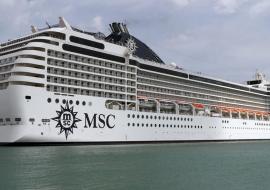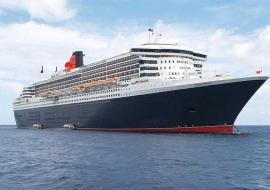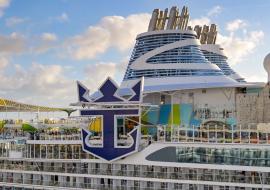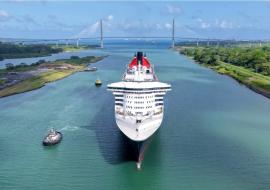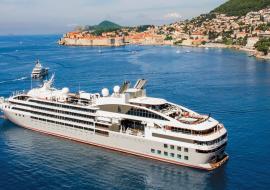U.S. Court Grants Partial Victory to Four Cruise Lines Over Use of Havana Port

A U.S. court has granted a partial victory to four major cruise lines in a case related to the use of the Port of Havana, Cuba. Royal Caribbean Cruises, Norwegian Cruise Line Holdings, Carnival Corporation, and MSC Cruises, which operated cruises to the island between 2016 and 2019, have been cleared of paying a fine of over $400 million.
The fine had been imposed by a district court in 2022, which ruled that the companies were involved in "trafficking confiscated property" seized during the Cuban Revolution. However, the Florida Court of Appeals ruled that the plaintiff, Havana Docks, no longer had legal rights over the port facilities after 2004, preventing any claims for damages for use of the property after that time.
Havana Docks, led by Mickael Behn, sought compensation for the seizure of three Havana docks in 1960 that belonged to his grandfather, William C. Behn. Under the Helms-Burton Act, which allows U.S. citizens to sue for properties confiscated by the Cuban government, the company sued the cruise lines, alleging they profited by more than $1.1 billion from using its docks. However, the appeals court determined that Havana Docks' usufruct rights over the property expired in 2004, invalidating the claims related to the period when the cruise companies operated their routes.
In 2022, Judge Beth Bloom ruled that the cruise lines were engaged in property trafficking by docking at Havana's port and using the facilities to disembark passengers. However, the appeals court, with one dissenting vote, overturned this decision, stating that Havana Docks did not hold full ownership rights to the area, only a limited concession to operate the docks that ended in 2004. While there is still an option to appeal the decision, the cruise lines are currently exempt from paying the fine.
Despite this favorable ruling, Carnival Corporation still faces a separate lawsuit related to its operations at Havana's port before 2004, when Havana Docks' concession was still in effect. It is alleged that Carnival may have violated the law by using the facilities between 1996 and 2001, during a period covered by the Helms-Burton Act.
The court also noted that the Cuban government's confiscation of the property likely violated international law, but this was not the issue being debated. The ruling emphasized that temporary property rights could not be converted into full ownership rights due to the activation of Title III of the Helms-Burton Act, setting an important precedent in interpreting the law.
While MSC Cruises, Norwegian Cruise Line Holdings, and Royal Caribbean expressed satisfaction with the court’s decision, Carnival was more reserved, stating they were pleased with the ruling but would not comment on ongoing litigation. This is the second time U.S. cruise lines have won an appeal under the Helms-Burton Act, following a 2023 case in which a court ruled in favor of Norwegian and MSC regarding the use of the Port of Santiago de Cuba.










